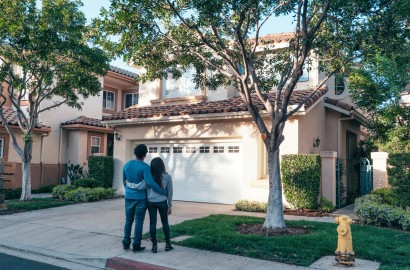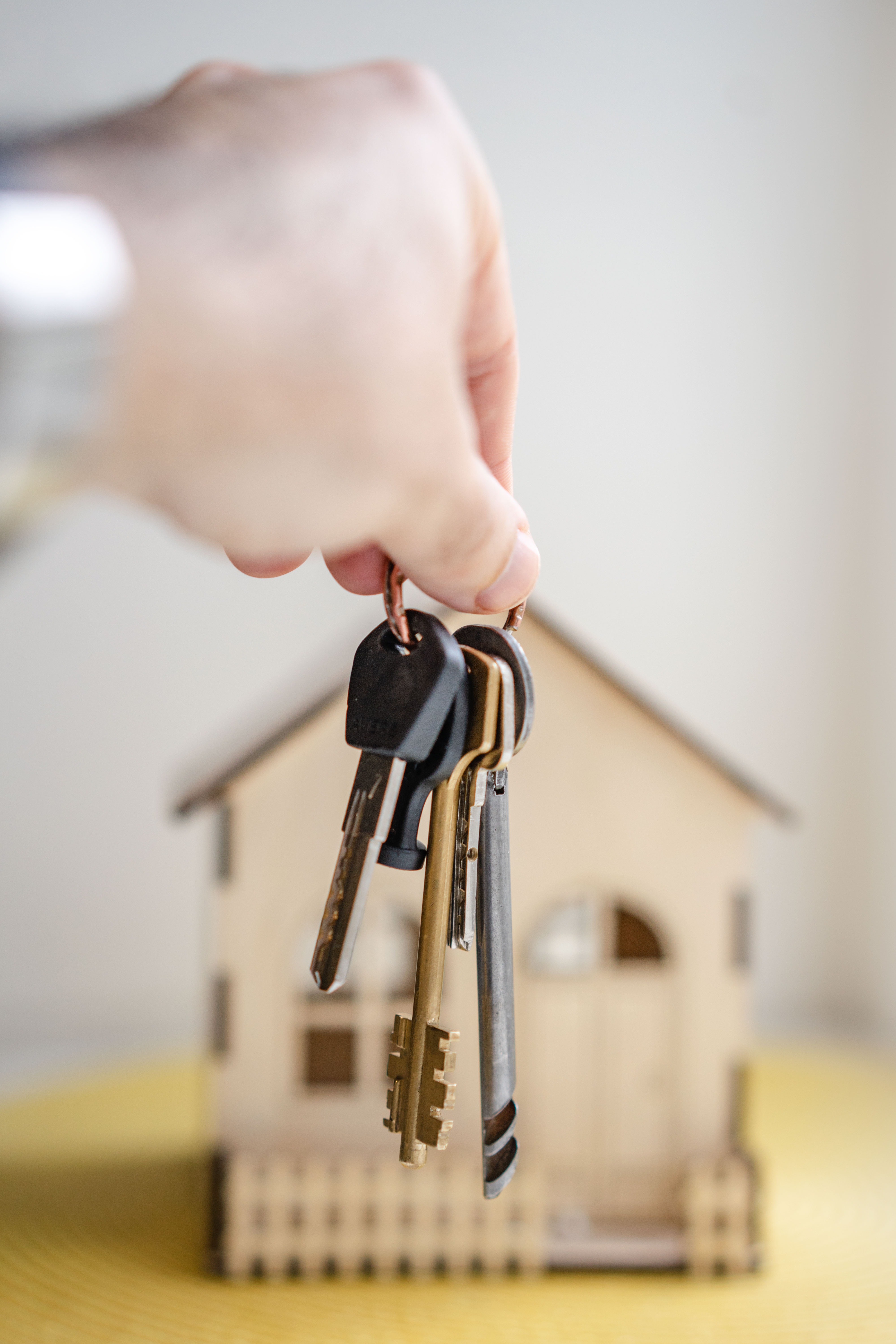The Best Tips for House Buying: The Dos and Don'ts, What to Look for, and What to Expect
Just like any big project of your life, choosing your friends, your partner, or buying a house, all are big experiences that require planning the details from start to finish. Homeownership is indeed a big life decision and you would want to plan it thoroughly and take it seriously.
Whether you’ve been saving up for years or you think you're tired of renting and want to own your own house no matter the financial consequences, the house buying process is complicated, and it can become overwhelming if you’re not well prepared.
Here are some tips that will guide you on your house buying journey.
Where Is the Best Location to Buy a Villa in Dubai?
#1 Arrange Your Finances
One of the most important tips when it comes to purchasing a house is preparing your finances. A home purchase is an investment so it demands financial planning. Study your financial stability: Does your bank account credit allows you to pay for the house you’re looking for? Will you consider taking a bank loan? If you managed to save the amount of your home and you think you’re ready then go for it but if you’re going for the mortgage option then you must keep a few things in mind. Pay your down debt, make your loan payments on time, avoid opening any new loans, and keep your credit card balances as low as possible. This way you will be fine.
Here, it is important to mention that if your savings do not cover the house of your dreams, do not opt for a lower expectation and qualifications home option just to escape renting and get your own house, and more importantly, do not get yourself into debt and involve yourself into loan complications.
Living in Dubai: Pros and Cons
#2 Stick to Your Budget
A Your lender may offer you more than you can comfortably afford, or you may feel pressured to spend outside your comfort zone to beat an offer or a deal. You can avoid financial stress down the road by setting a budget-based price range and sticking to it.
And don't max out your budget! Just because you’ve been approved for a $100,000 loan doesn’t mean you have to buy house at $100,000. There will be closing costs, taxes, insurance, repairs, and monthly bills waiting for you to consider.
Extra tip: If you are in a competitive market, look to purchase a house below your price limit so you have some wiggle room to bid, and don't buy a bigger space than what you might need.
A Guide to Golden Visa in the UAE

#3 Renting Might Be A Better Option
Just like we just mentioned, do not get yourself in the trouble of loans and debts just to buy a home. It is not worth it. In fact, renting is sometimes a better option. If you're only planning on staying in a home for a couple of years, then consider renting and not buying a house. Renting is not that bad. Sometimes you may be able to afford your monthly mortgage payments but you can't afford unexpected repairs and maintenance, So, take some extra time to think about the long-term benefits of renting over buying a home. You won't have to worry about costly repairs and maintenance or put any money down upfront.
8 Most Expensive Hotels in Dubai
#4 Work Out The True Cost of House Buying
You may think that house buying is as easy as getting a mortgage, grabbing the keys, and voila - you're in. However, you should be aware that it's almost guaranteed to cost more than you initially expect.
Here’s why:
Down payment:
Your down payment requirement will depend on the type of mortgage you choose but sometimes even a small down payment can be challenging to pay, reaching as little as 3% of the total cost.
Mortgage arrangement fee:
Expect to pay an arrangement fee to your loan lender or bank. The fees vary but an amount of $1,000 is typical. Sometimes it is non-refundable even if the purchase falls through.
Taxes & Legal fees:
If you pay for your own conveyancing, you're looking at about 500$- 800$ of taxes and legal fees, depending on the purchase price.
Closing costs:
Closing costs are the fees and expenses you pay to finalize your mortgage, and they typically range from 2% to 5% of the loan amount.
Insurance:
Some cases require employing an insurance company and by insurance, we mean a lot of additional costs
Home repairs:
From leaky roofs to leaky sinks, put aside some cash for unexpected home maintenance.
Move-in expenses:
Remember that you'll need to buy everything from beds and sofas to curtains and carpets. And these expenses also need serious savings.
A Guide to Golden Visa in the UAE
#5 Select Your Real Estate Agent/Company Carefully
The days of peeking into real estate agents' windows to see how much people are advertising their homes are long gone. And today, you have infinite online opportunities to access your real estate agency. There’s absolutely no reason not to hire an agent. An agent is a professional who will not only schedule and accompany you on showings but also guide you throughout the whole house buying process.
Choosing the right agent to represent you in the real estate process will assist you in finding the home that meets your requirements and will assist you with the negotiation and closing process. It is a crucial step in your home purchase.
Interview at least a few agents, request references, and squeeze him for all the info. Question everything and get written answers to ensure clarity. Nothing is too silly to ask about.
The Top 6 Benefits of Working With a Real Estate Company When Buying or Selling a Home
#6 Look for The Right Type of House For Your Family
When you start your house-hunting, consider the pros and cons of different types of homes before making a decision based on your lifestyle and needs. A townhome may be more affordable than a single-family home, but it will have fewer privacy features than a single-family home.
You should think about whether a starter home or forever home will better meet your long-term needs. If you plan to start or expand your family, it may make sense to buy a home with extra room to grow so you don’t regret anything later on.
Stay flexible — you’ll probably need to adjust your house selection criteria as your search continues. For instance, you might decide it’s worth sacrificing an extra room to be in a much-desired neighborhood.
It is also important to set up multiple visits to the potential house of your choice before making the purchase decision. Check out the house on a sunny day to observe if the windows let in natural light. Then race over on a rainy day to confirm that the roof and walls don’t leak.
Should You Buy or Rent a Flat/Apartment?
#7 Keep Looking
If the first home is the one for you, that's fantastic! However, it's a smart idea to take a look at multiple homes and offers. It's crucial to examine several houses to buy from so you can compare their pros and cons before actually making up your mind and house buying. Seeing more homes will give you a clearer understanding of your options and choices, and there's a chance you'll find an even better one!
If you're considering purchasing a home, it's always a good idea to get multiple opinions. Your friends and family members may be able to point out potential problems that you overlooked, such as drainage issues or mold in the basement.
Having someone else take a look at the property can help you avoid making costly mistakes. If you're lucky enough to have a friend in construction, ask them to take a look at the house's foundation and determine if it will still be standing upright in another 100 years.
However, it’s important to ignore some opinions except those that are provided by grounded knowledge and advice.
Family and friends who have bought their houses decades ago aren’t probably aware of all the important details of today’s home buying process but people who have been working in real estate and home improvement for years do know their stuff, so listen to them.
Factors to Consider when Searching for a New Rental Property
#8 Negotiate with the seller
Don’t just go with the flow and approve everything that the seller offers you. You may be in a powerful position especially if the property has some gaps or issues. If you lack negotiation and confidence skills, hiring a professional negotiator can help you get the deal you want and benefit from the situation.
However, your negotiating power will be limited by the local market and the seasons. There is less room to drive a hard bargain when there are more buyers than homes for sale. Your real estate agent can help you understand the local market and strategize accordingly.
#9 Don’t Skip Home Inspection
In the process of purchasing a home, a home inspection is essential. It provides a thorough assessment of the structure and mechanical systems. If you are looking to buy a house, it is in your best interest to have a professional inspector look for any potential problems. This way, you can make an informed decision about whether or not to purchase the property.
Here are some things to keep in mind:
- Standards home inspections only include a visual examination of the home and don't test for things like radon, mold, or pests. Make sure you understand what is included in the inspection and ask if there are any other inspections you might need.
- Ensure that the inspector gets to every part of the house, such as the roof and any crawl spaces.
- Stalk around the inspector so you can get a better understanding of the home and ask questions on the spot. If you're unable to attend the inspection, review the inspector's report in detail to get the most accurate information, and inquire about anything that isn't clear.
- Verify every detail and insist on full written disclosure from the seller about remodeling, repairs, old damages, leaks, mold, etc.
Looking for a Studio: What Qualities and Characteristics You Should Look For in Studio?

#10 Check Out The Neighborhood
Not only should you love your house, but also your neighborhood! Neighbors can, in fact, make or break your home purchase!
If you have a neighborhood area on your mind, prowl it on foot, hunting for clues. Visit the parks and shops at different times of the day. Do you like the schools and hospitals? Note the public transportation stops as well.
Do you feel anything creepy about the streets? Anything suspicious? Is it a noisy neighborhood?
It's always a good idea to scope out the area and home you're thinking of moving into, and talking to your future neighbors is a great way to do that. Knock, knock, knock on neighbors' doors, and have a small chat with them. They may offer tip-offs on the area. They are likely, to be honest about what the neighborhood is like and less likely to be eager to get rid of the sellers.
Check how well-maintained homes are. A well-maintained home is a sign of good ownership and thus a clean neighborhood.
Don’t forget to research the neighborhood. Online municipality and police crime-mapping websites show local hotspots and break down recorded crimes such as burglary and anti-social behavior.
Best Cities to Live in UAE: Top 8
#11 Buy Adequate Home Insurance
You will be required to purchase homeowners insurance before closing the deal. You can claim coverage for the cost of repairing or replacing your belongings and your home if they are damaged by buying house insurance. If you are held liable for an injury or accident, it also provides liability insurance. Buy enough home insurance to cover the cost of rebuilding the home - but only if you can afford it! - if it's destroyed. Insurance, coupled with inspections, alleviates maintenance costs.
Our Blog




